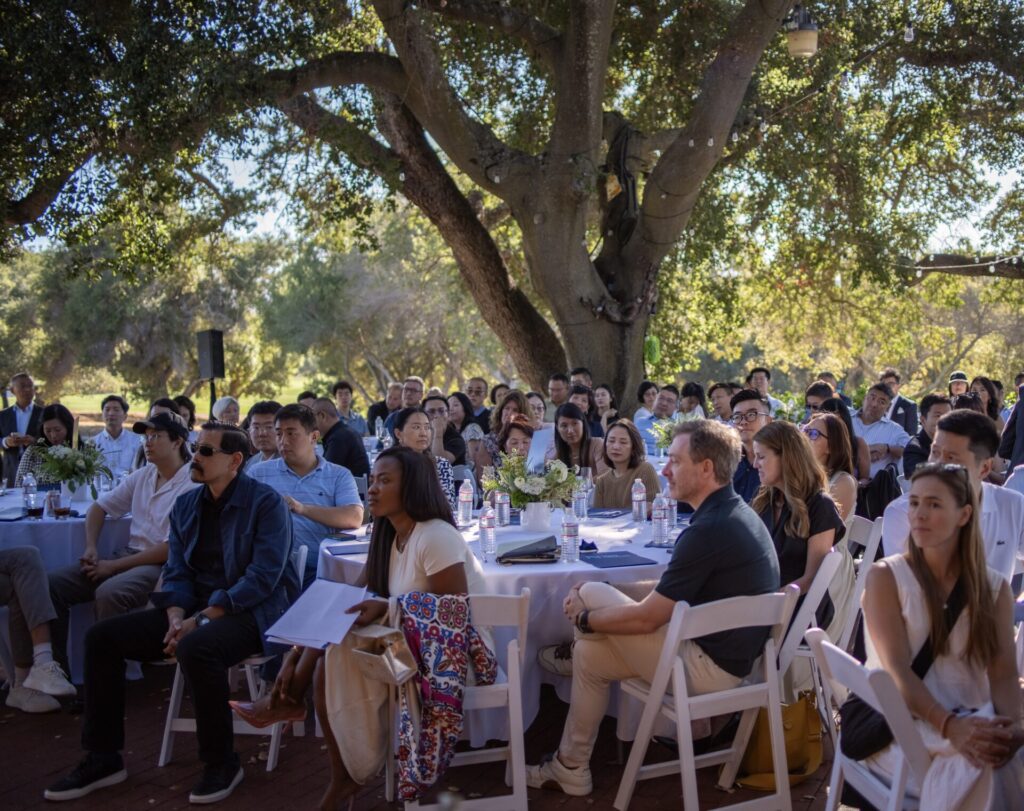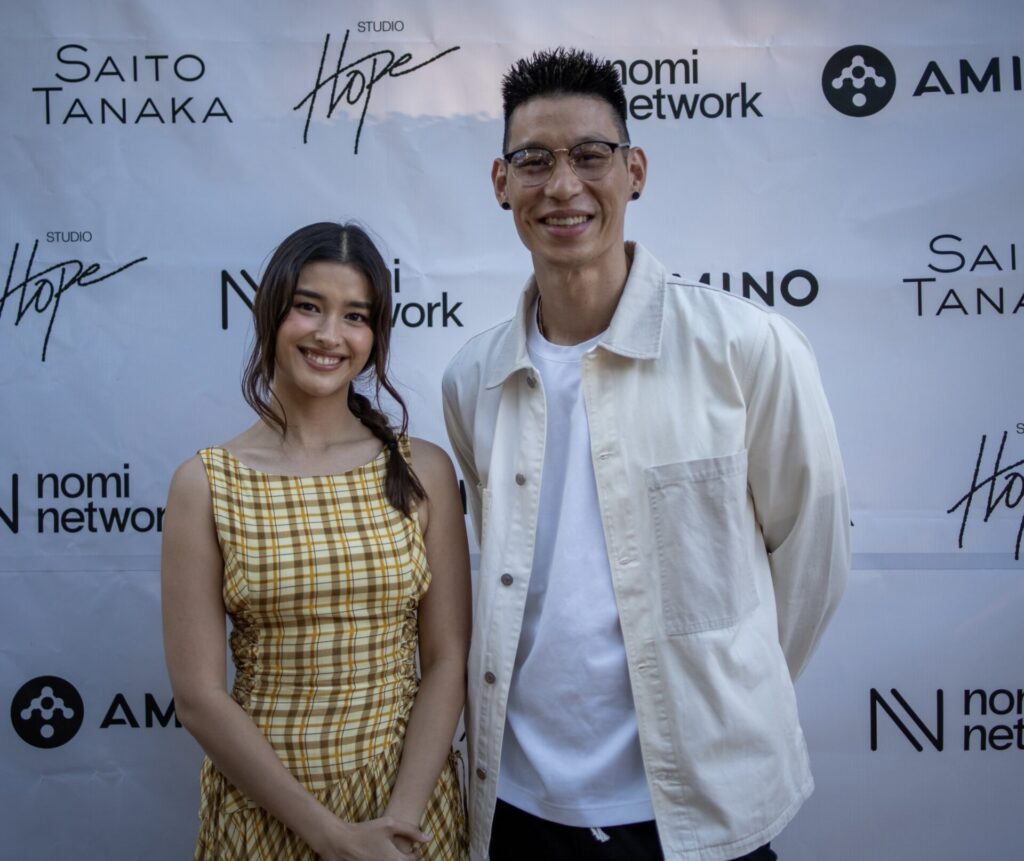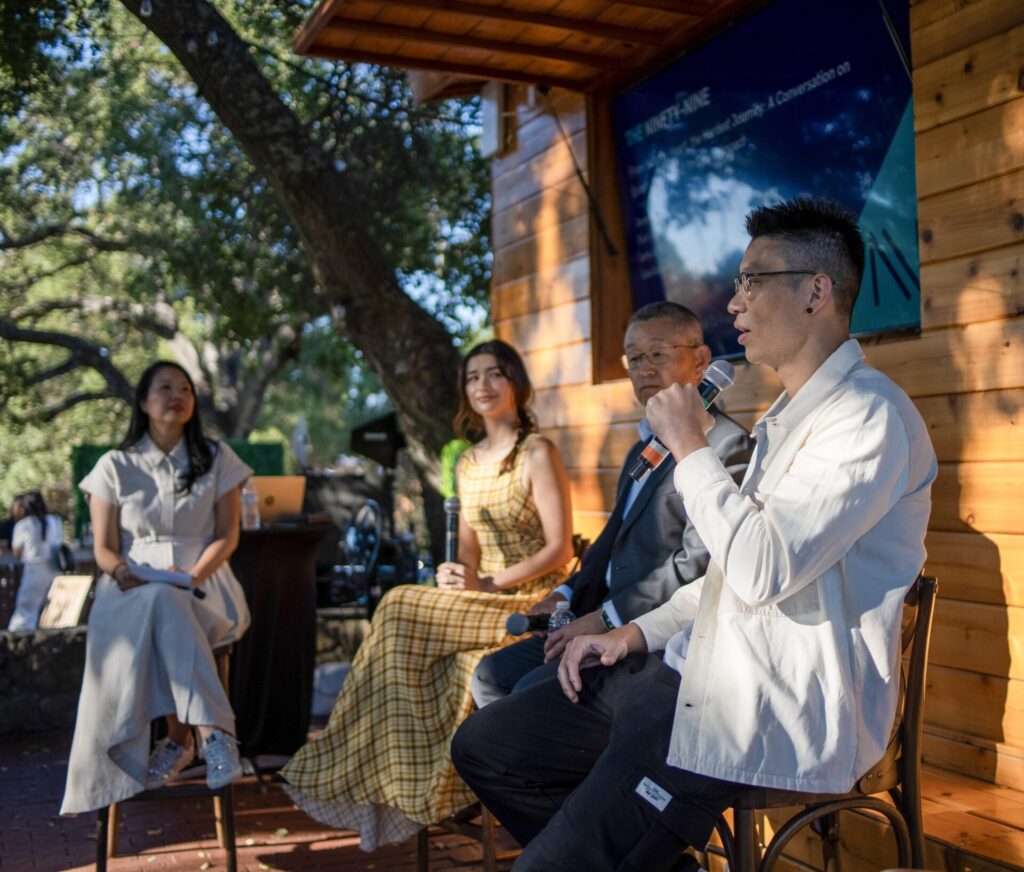Nomi Network co-hosted The Ninety-Nine at Birdie’s at Stanford Golf Course, with Sue Xu and Larry Li of Amino Capital, with generous sponsorship from Le Saito Tanaka Private Wealth Group, Funny Face Films, Raise for Good, and Deloitte.
This intimate, invitation-only gathering convened investors, technologists, philanthropists, and cultural influencers to explore how artificial intelligence, entertainment, and storytelling can fight or fuel exploitation. The evening featured high-level discussions, curated networking, and survivor-centered dialogue designed to accelerate systemic change in the fight against human trafficking.

AI and the Fight Against Exploitation
Speakers tackled AI’s dual role as both a tool and a threat. There was a clear call for ethical guardrails and responsible design, stressing that survivor voices must shape technology. Participants agreed that AI can replace redundant tasks, ensuring more resources flow directly to survivor support and innovation.
“We want to use technology to lift up everybody. This is not just a saying—there are many ways you can do it.”
Survivor Leadership and Advocacy
At the heart of the event were voices of lived experience. Nomi Network Board Member Bella Hounakey shared her personal story. Her words underscored the urgency of survivor-informed advocacy in shaping effective policies and programs.
“I actually survived human trafficking… and I felt like I needed to give back in a way that restores my faith in humanity and systems. When I joined this movement, it was about educating the public in different sectors about trafficking dynamics.”

Entertainment as a Force for Change
Influencers like Liza Soberano spoke about the power of storytelling to shift narratives and policy.
“The first project I worked on with Save the Children in the Philippines was raising the age of consent. Since 1977, it had been 12 years old. After our campaign, they finally approved the bill to raise the age. It’s not the 18 we wanted, but it is a huge step in the right direction.”
“Matilda was the first movie that made children realize they had a right to education. That is what entertainment is for—fictional storytelling that teaches people their rights.”
Jeremy Lin shared that he sees his platform as a responsibility to draw attention to those in need. He views the Jeremy Lin Foundation as a way to use his visibility as an athlete to make a meaningful difference, noting that public attention should be used to highlight worthwhile causes.
These reflections illustrated how film, media, and culture can empower youth, elevate survivor voices, and mobilize global movements.

Philanthropy and Corporate Engagement
The event also highlighted the critical role of philanthropy and corporate engagement in ending exploitation. Panelists gave a powerful call to action.
“Let’s stand with them, give our support in ways that truly matter, by listening first, and then acting. Because we are the 99, the few committed to making real, lasting impact.”
“Invest in the people you like, invest in the cause you love—that’s it. Don’t think too much about money. If you invest in good people, the money returns.”

A Mission-Driven Gathering
With its off-the-record format and solutions-focused dialogue, The Ninety-Nine created a unique environment where leaders could explore bold collaborations. Networking between panels deepened partnerships and inspired new strategies to align technology, philanthropy, and advocacy for maximum impact.




